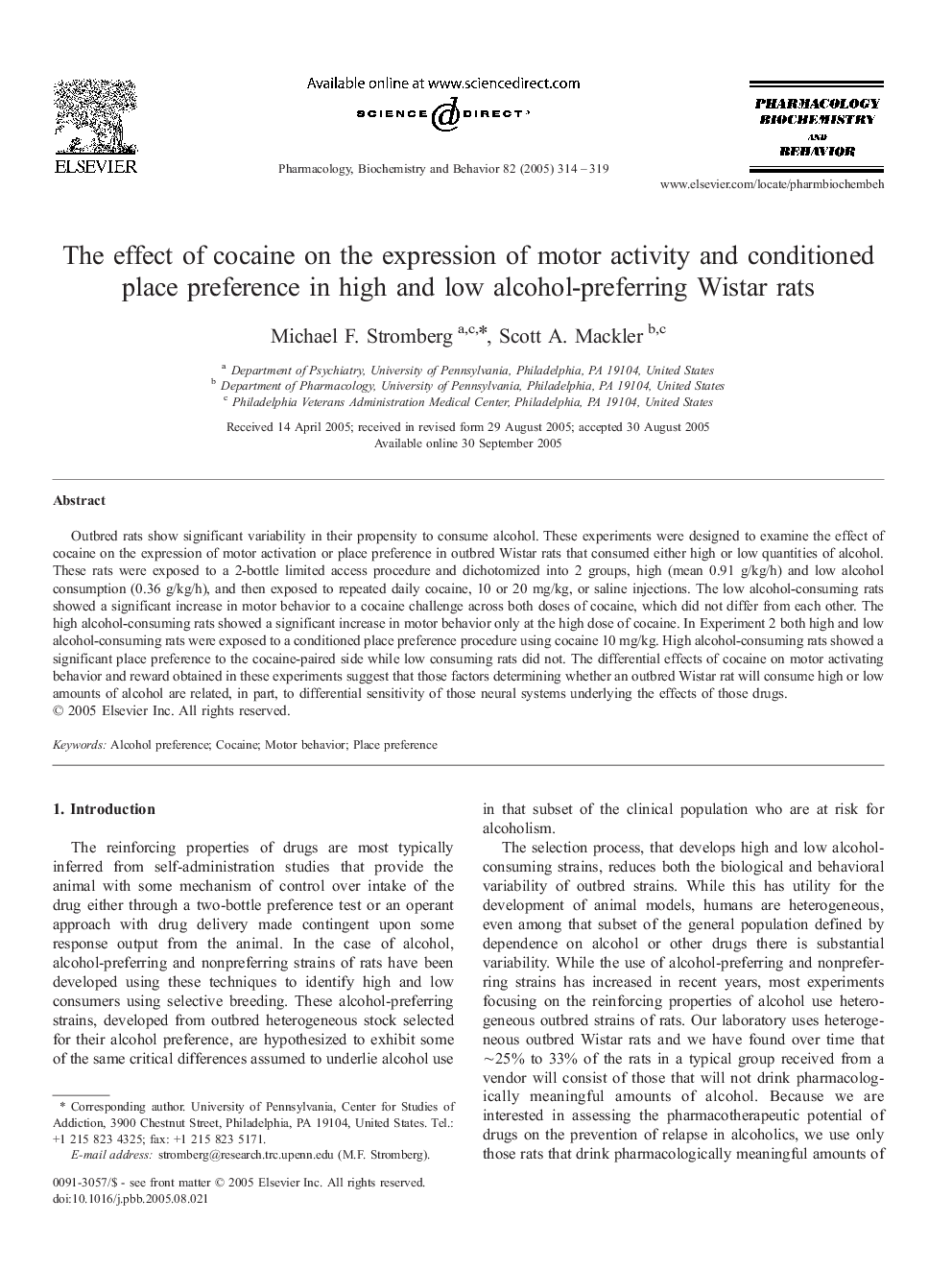| Article ID | Journal | Published Year | Pages | File Type |
|---|---|---|---|---|
| 10838501 | Pharmacology Biochemistry and Behavior | 2005 | 6 Pages |
Abstract
Outbred rats show significant variability in their propensity to consume alcohol. These experiments were designed to examine the effect of cocaine on the expression of motor activation or place preference in outbred Wistar rats that consumed either high or low quantities of alcohol. These rats were exposed to a 2-bottle limited access procedure and dichotomized into 2 groups, high (mean 0.91 g/kg/h) and low alcohol consumption (0.36 g/kg/h), and then exposed to repeated daily cocaine, 10 or 20 mg/kg, or saline injections. The low alcohol-consuming rats showed a significant increase in motor behavior to a cocaine challenge across both doses of cocaine, which did not differ from each other. The high alcohol-consuming rats showed a significant increase in motor behavior only at the high dose of cocaine. In Experiment 2 both high and low alcohol-consuming rats were exposed to a conditioned place preference procedure using cocaine 10 mg/kg. High alcohol-consuming rats showed a significant place preference to the cocaine-paired side while low consuming rats did not. The differential effects of cocaine on motor activating behavior and reward obtained in these experiments suggest that those factors determining whether an outbred Wistar rat will consume high or low amounts of alcohol are related, in part, to differential sensitivity of those neural systems underlying the effects of those drugs.
Related Topics
Life Sciences
Biochemistry, Genetics and Molecular Biology
Biochemistry
Authors
Michael F. Stromberg, Scott A. Mackler,
